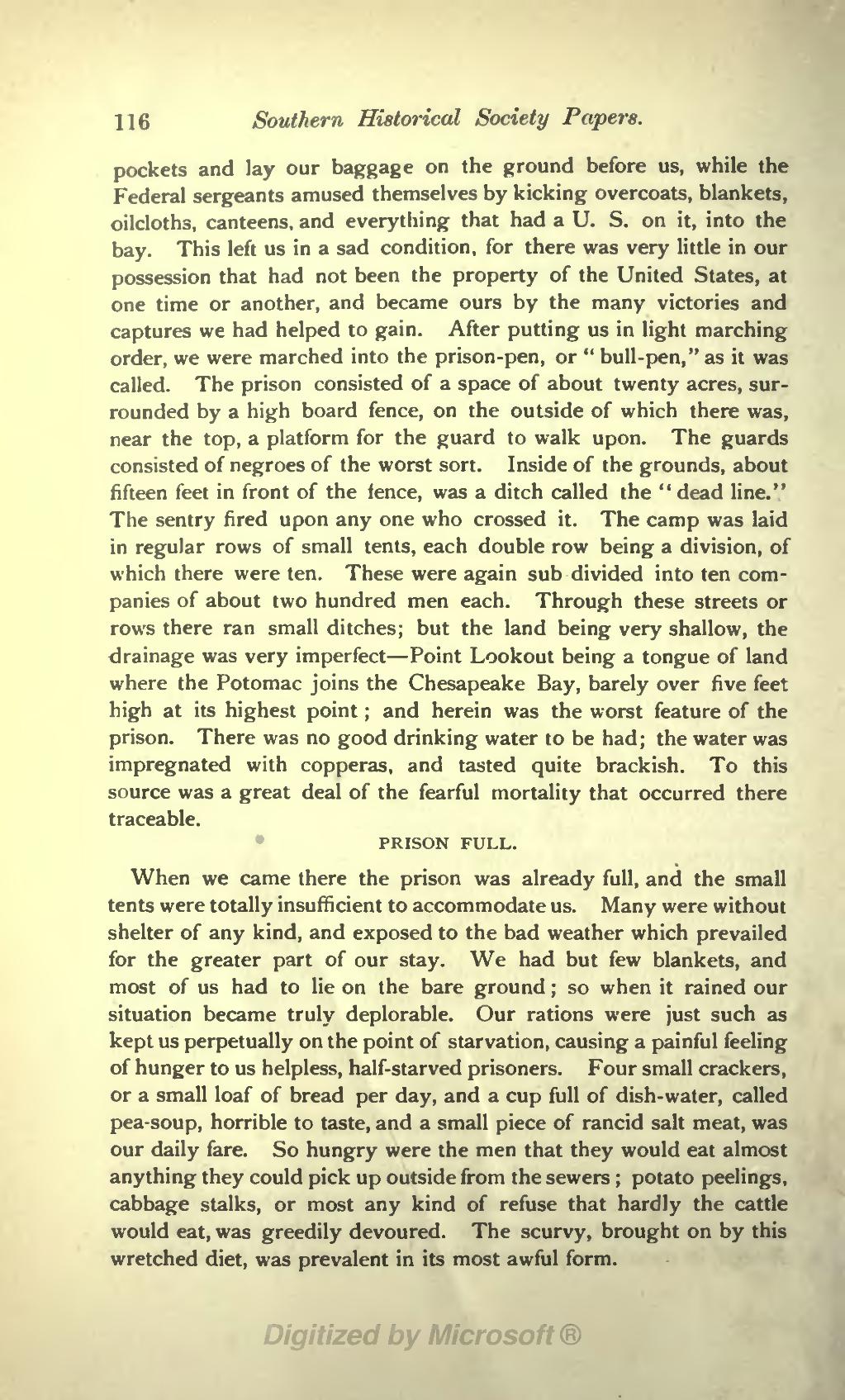116 Southern Historical Society Papers.
pockets and lay our baggage on the ground before us, while the Federal sergeants amused themselves by kicking overcoats, blankets, oilcloths, canteens, and everything that had a U. S. on it, into the bay. This left us in a sad condition, for there was very little in our possession that had not been the property of the United States, at one time or another, and became ours by the many victories and captures we had helped to gain. After putting us in light marching order, we were marched into the prison-pen, or " bull-pen," as it was called. The prison consisted of a space of about twenty acres, sur- rounded by a high board fence, on the outside of which there was, near the top, a platform for the guard to walk upon. The guards consisted of negroes of the worst sort. Inside of the grounds, about fifteen feet in front of the fence, was a ditch called the " dead line." The sentry fired upon any one who crossed it. The camp was laid in regular rows of small tents, each double row being a division, of which there were ten. These were again sub divided into ten com- panies of about two hundred men each. Through these streets or rows there ran small ditches; but the land being very shallow, the drainage was very imperfect Point Lookout being a tongue of land where the Potomac joins the Chesapeake Bay, barely over five feet high at its highest point ; and herein was the worst feature of the prison. There was no good drinking water to be had; the water was impregnated with copperas, and tasted quite brackish. To this source was a great deal of the fearful mortality that occurred there traceable.
PRISON FULL.
When we came there the prison was already full, and the small tents were totally insufficient to accommodate us. Many were without shelter of any kind, and exposed to the bad weather which prevailed for the greater part of our stay. We had but few blankets, and most of us had to lie on the bare ground ; so when it rained our situation became truly deplorable. Our rations were just such as kept us perpetually on the point of starvation, causing a painful feeling of hunger to us helpless, half-starved prisoners. Four small crackers, or a small loaf of bread per day, and a cup full of dish-water, called pea-soup, horrible to taste, and a small piece of rancid salt meat, was our daily fare. So hungry were the men that they would eat almost anything they could pick up outside from the sewers ; potato peelings, cabbage stalks, or most any kind of refuse that hardly the cattle would eat, was greedily devoured. The scurvy, brought on by this wretched diet, was prevalent in its most awful form.
